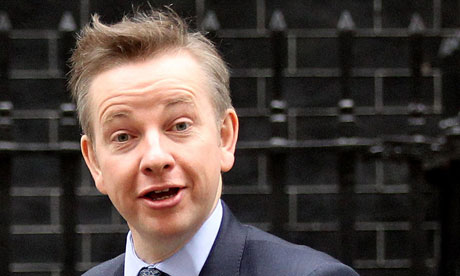Manchester City and Burnley players - and the referee, Andre Marriner - take a knee before their match at the Etihad Stadium last month. Photograph: Michael Regan/NMC/EPA
When it comes to race and racism, we focus on those at the sharp end of discrimination – from black people routinely subjected to police brutality to people of colour missing from positions of influence. Progressive ideals invoke “inclusion” for ethnic minorities, or special bias training. These measures may be necessary, but they put the focus squarely on those subjected to victimisation – rather than the system that perpetuates racism.
What results is a form of benevolence whereby some people of colour get “included” as part of diversity measures, even as social hierarchies and habits of thought in white-majority societies remain largely unchanged.
There is no point in declaring that race doesn’t make a difference or that equality exists when it clearly doesn’t
The truth is that there is nothing pleasant about confronting the reality of an acute racial hierarchy. If the racial order is really to change – and there are those who don’t want it to – it is not just black lives or racial minorities that should be the topic of discussion, but the racial ideology that currently calls the shots in western societies.
This is what brings us to “whiteness” – which is not a biological category so much as a set of ideas and practices about race that has emerged from a bedrock of white supremacy, itself the legacy of empire and slavery. Confronting the idea of whiteness involves far more uncomfortable discussions than “inclusion”, especially for people deemed white, since it involves self-examination and acknowledging ugly truths, both historical and contemporary. It is simply easier to try to shut it out or down.
I found this out to my cost last week when I tweeted a response to the racially inflammatory “White Lives Matter” banner flown over the Etihad Stadium after Manchester City and Burnley footballers had “taken the knee” to honour George Floyd. My tweet, deliberately playing with the wording of the banner by qualifying it, made the point that white lives cannot be deemed to matter because they are white, that it should not be whiteness that gives those lives value. In addition to the tsunami of racist sewage that immediately came my way, littered with N-words and P-words along with sexist slurs, rape fantasies, death threats and open declarations that “white lives matter more”, I was repeatedly asked why, if white lives did not matter as white lives, do black lives matter? Was that also not also racist?
No, it is not also racist. White lives already matter more than others so to keep proclaiming they matter is to add excess value to them, tilting us dangerously into white supremacy. This doesn’t mean that all white people in western societies are materially well-off or don’t experience hardship, but that they don’t do so by virtue of the fact that they are white. Black lives remain undervalued and in order for us to get to the desirable point where all lives (really do) matter, they must first achieve parity by mattering. It’s not really that hard to understand unless you choose not to.
Studies of “whiteness” are not new. Respected scholars, such as the late Noel Ignatiev, author of How the Irish Became White, and David Roediger, have studied the history and sociology of whiteness in great detail. Ignatiev, who was Jewish, wrote about the “abolition of whiteness”, not as a call to eliminate white people but a system of racial entitlement that necessarily relied on the exclusion of those deemed to be lesser. For Ignatiev, whiteness was not a biological fact so much as a kind of ideological club where “the members go through life accepting the benefits of membership, without thinking about the cost” to others.
Over time, people have been added to the club and aspire to membership of it, from the Irish and European Jews to many Asians today. One distinctive feature of whiteness as ideology is that it can make itself invisible and thereby make its operations more lethal and harder to challenge. Science and the humanities are largely in accord that “race” is not a biological category, but a way of creating power differentials, which have practical consequences. If that power differential in western societies is to be removed, then the ideology at the top – whiteness – must be abolished. Only then can the abolition of all other racial categories – and the post-racial world we so often claim to espouse – actually follow.
Although in Britain I am racialised as “non-white” or Asian, in my birth country of India I have some experience of what it is like to be a member of a powerful but invisible ruling category. As a Brahmin (the “highest-ranking” tier of the deeply hierarchical Hindu caste system), I belong to a social grouping that operates much like whiteness does. It rules the roost, is not disadvantaged by virtue of caste (though there are those who might suffer from poverty or misogyny), and it treats any challenge to its power as a form of victimisation or “reverse oppression”. For the record, there is no such thing: oppression only operates downwards. This is why, at the same time as I reinforced Ignatiev’s call for the abolition of “whiteness”, I repeated that Brahmin supremacy in India must also be abolished.
When it comes to race and racism, we focus on those at the sharp end of discrimination – from black people routinely subjected to police brutality to people of colour missing from positions of influence. Progressive ideals invoke “inclusion” for ethnic minorities, or special bias training. These measures may be necessary, but they put the focus squarely on those subjected to victimisation – rather than the system that perpetuates racism.
What results is a form of benevolence whereby some people of colour get “included” as part of diversity measures, even as social hierarchies and habits of thought in white-majority societies remain largely unchanged.
There is no point in declaring that race doesn’t make a difference or that equality exists when it clearly doesn’t
The truth is that there is nothing pleasant about confronting the reality of an acute racial hierarchy. If the racial order is really to change – and there are those who don’t want it to – it is not just black lives or racial minorities that should be the topic of discussion, but the racial ideology that currently calls the shots in western societies.
This is what brings us to “whiteness” – which is not a biological category so much as a set of ideas and practices about race that has emerged from a bedrock of white supremacy, itself the legacy of empire and slavery. Confronting the idea of whiteness involves far more uncomfortable discussions than “inclusion”, especially for people deemed white, since it involves self-examination and acknowledging ugly truths, both historical and contemporary. It is simply easier to try to shut it out or down.
I found this out to my cost last week when I tweeted a response to the racially inflammatory “White Lives Matter” banner flown over the Etihad Stadium after Manchester City and Burnley footballers had “taken the knee” to honour George Floyd. My tweet, deliberately playing with the wording of the banner by qualifying it, made the point that white lives cannot be deemed to matter because they are white, that it should not be whiteness that gives those lives value. In addition to the tsunami of racist sewage that immediately came my way, littered with N-words and P-words along with sexist slurs, rape fantasies, death threats and open declarations that “white lives matter more”, I was repeatedly asked why, if white lives did not matter as white lives, do black lives matter? Was that also not also racist?
No, it is not also racist. White lives already matter more than others so to keep proclaiming they matter is to add excess value to them, tilting us dangerously into white supremacy. This doesn’t mean that all white people in western societies are materially well-off or don’t experience hardship, but that they don’t do so by virtue of the fact that they are white. Black lives remain undervalued and in order for us to get to the desirable point where all lives (really do) matter, they must first achieve parity by mattering. It’s not really that hard to understand unless you choose not to.
Studies of “whiteness” are not new. Respected scholars, such as the late Noel Ignatiev, author of How the Irish Became White, and David Roediger, have studied the history and sociology of whiteness in great detail. Ignatiev, who was Jewish, wrote about the “abolition of whiteness”, not as a call to eliminate white people but a system of racial entitlement that necessarily relied on the exclusion of those deemed to be lesser. For Ignatiev, whiteness was not a biological fact so much as a kind of ideological club where “the members go through life accepting the benefits of membership, without thinking about the cost” to others.
Over time, people have been added to the club and aspire to membership of it, from the Irish and European Jews to many Asians today. One distinctive feature of whiteness as ideology is that it can make itself invisible and thereby make its operations more lethal and harder to challenge. Science and the humanities are largely in accord that “race” is not a biological category, but a way of creating power differentials, which have practical consequences. If that power differential in western societies is to be removed, then the ideology at the top – whiteness – must be abolished. Only then can the abolition of all other racial categories – and the post-racial world we so often claim to espouse – actually follow.
Although in Britain I am racialised as “non-white” or Asian, in my birth country of India I have some experience of what it is like to be a member of a powerful but invisible ruling category. As a Brahmin (the “highest-ranking” tier of the deeply hierarchical Hindu caste system), I belong to a social grouping that operates much like whiteness does. It rules the roost, is not disadvantaged by virtue of caste (though there are those who might suffer from poverty or misogyny), and it treats any challenge to its power as a form of victimisation or “reverse oppression”. For the record, there is no such thing: oppression only operates downwards. This is why, at the same time as I reinforced Ignatiev’s call for the abolition of “whiteness”, I repeated that Brahmin supremacy in India must also be abolished.
One of my less discourteous correspondents last week asked me, using only one expletive, why people “need a manual for race relations” when we could just respect each other. Unfortunately, until we get to a point where all lives really do matter, there is no point in declaring that race doesn’t make a difference or that equality exists, when it clearly doesn’t. “White lives matter” implicitly suggests whites matter more than others. “Black lives matter” is saying those lives need to matter more than they have, that society needs to give them more weight. Until we square up to the ugly realities of how whiteness operates – lethally, invisibly, powerfully – we are doomed to fighting a toxic and pointless culture war, where the only winners are those who want hatred to prevail.


